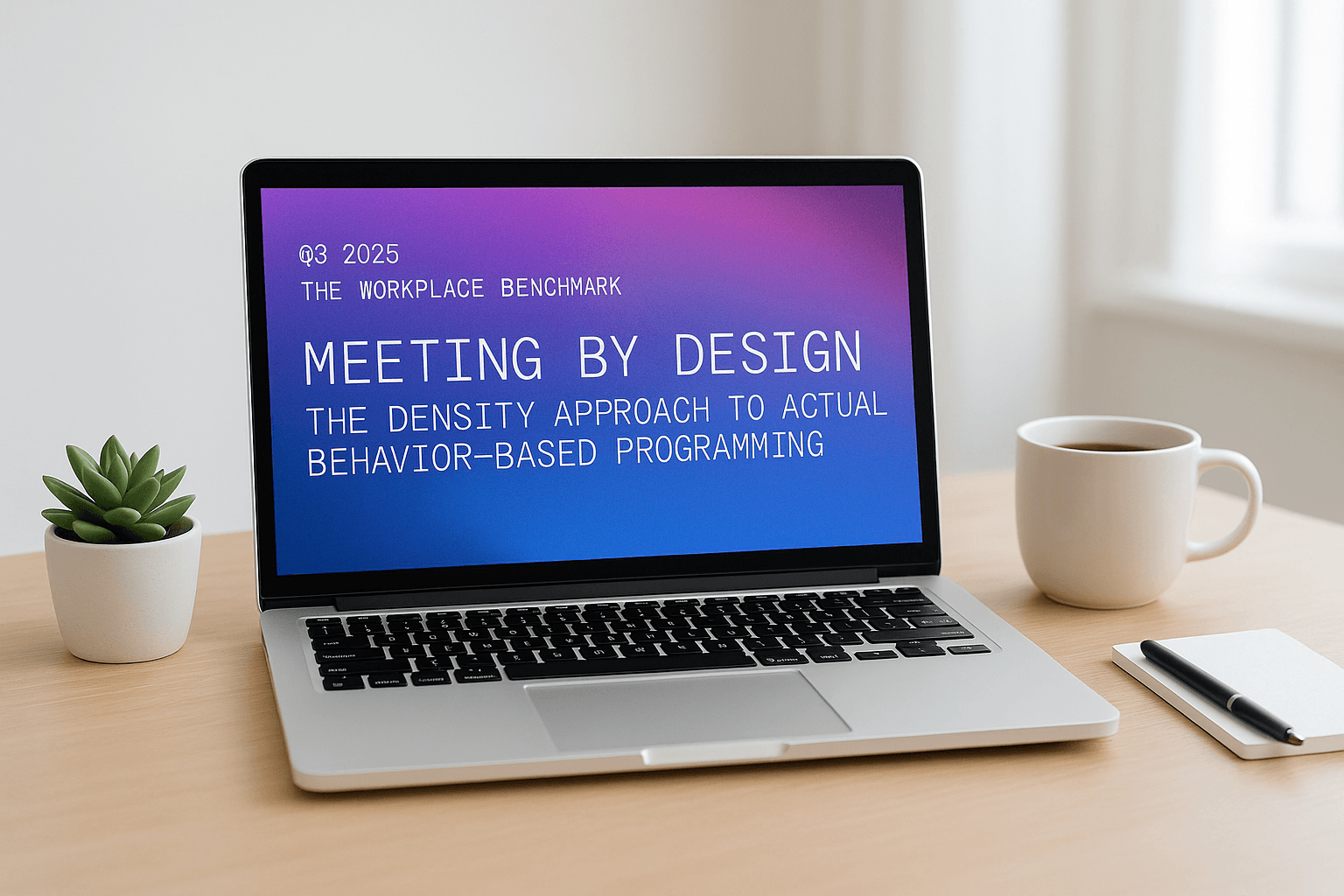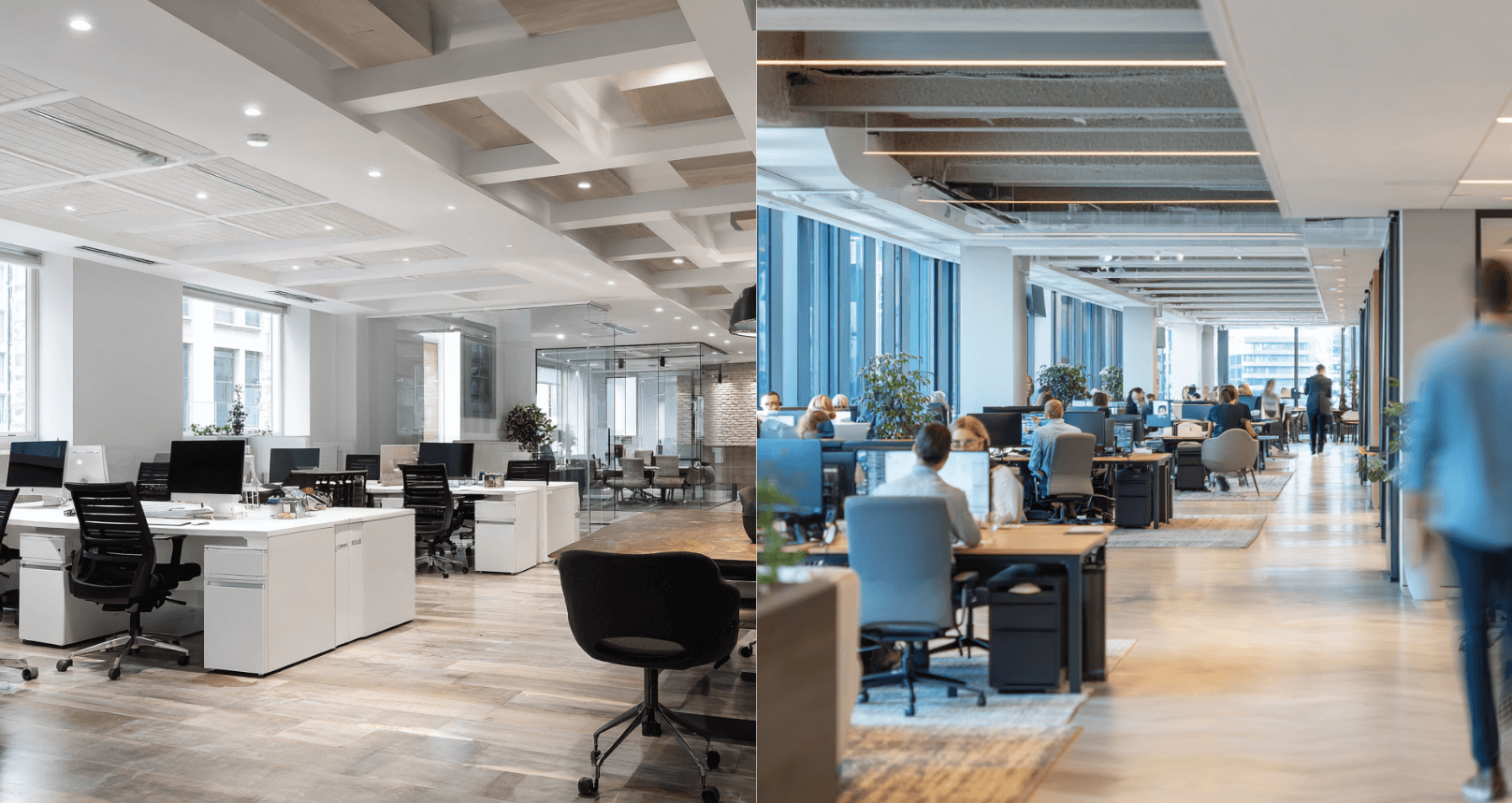Designing the new workplace, with Twitch’s Head of Global Workplace & Real Estate
Izzy Sanchez, Head of Global Workplace and Real Estate at Twitch, shares his thoughts on the state of the workplace.
.jpg)
As part of an ongoing webinar series, we talked to Izzy Sanchez, Head of Global Workplace and Real Estate at Twitch, about the state of the workplace.
During our conversation, Izzy talked about the new workplace, what the office will look like long-term, and how vaccine availability will affect real estate strategy.
For context, Twitch has 30 offices across the globe, with roughly 300,000 square feet.
A few takeaways
- Today, 70% of Twitch is unassigned. The pandemic accelerated their trend to unassigned workspaces, and they expect it to stick.
- Although the pandemic has squeezed total utilization to just 1%, Twitch hasn't shed any office space. They're targeting utilization of 45% as folks return. There's an internal bet on the workplace team — folks will return either at the end of August or Jan of 2022.
- Something we've heard from many colleagues —the future of Twitch's offices is not just about work. It will be a gathering place for personal and professional collaboration.
On Twitch's return-to-office strategy
In the early stages, they're looking at keeping spaces to 35% occupancy. This gives them leeway to test out their processes. They'll then inch it up to 45% soon after.
They are considering measuring occupancy by floor, not building. Measuring by floor paints a more accurate picture (you might have higher populations on certain floors if people migrate to different areas once they're in the building).
While offices are still not fully online, Izzy's looking at a 5% threshold. Any office that is under 5% utilization is on "pause." But he knows that's just a short-term strategy.
"We understand folks are working from home. What we plan on doing is reassessing the need afterward."
He doesn't have a clear utilization threshold for the post-pandemic world. He does know that before the pandemic, Twitch's offices across its portfolio hovered around 65% utilization. Moving forward, he'd be surprised if offices ever exceeded 55%.
On unassigned seating
Twitch was already headed this way. They conducted studies and were piloting a change — then boom, the pandemic hit. Unsurprisingly, COVID accelerated the push to unassigned.
But even before the pandemic, Izzy noticed an issue with measuring utilization in a hot-desking environment. For context, Twitch uses two data trackers for this, their desk reservation system and badge data.
If Izzy looked at his reservation system, he'd see about 80% utilization. Meaning 80% of desks were supposedly in use.
But his badge data showed a workplace occupancy of anywhere between 40-60%.
"There definitely are cases of people reserving and not using the space."
Another issue Izzy faced was change management. There's always pushback when it appears you're taking something away from employees (in this case, their desks).
Izzy addressed some of this pushback by asking employees how much time they actually spend at their workstations.
"If you walk around your office, most of the space is always empty. But if you look at the occupancy, we're at like 65% of the people, so where were they?" he says. "They're all in meetings or other spaces."
Helping employees realize they don't need their desks as much as they think is making the transition to unassigned seating easier.
On how the workplace will change
The pandemic helped Izzy discover how meaningful virtual experiences have always been.
Even before the pandemic, it wasn't easy to share "the workplace experience" with employees scattered across the globe. One office might have a technologically advanced AV room, for example. But colleagues in other offices can't experience that space through the confines of a computer screen.
So, Izzy's looking at ways to up Twitch's virtual experience — particularly now that more employees will work away from the office.
Here's one example: in team rooms, they might historically have had one stationary camera for virtual attendees. But not everyone in a meeting wants to sit around a desk. Some folks are in soft seating. Others want to walk around. Izzy's interested in using tech that creates as close to a 360-degree experience as possible.
"How do we democratize the experience of the office, no matter where you are?"
What does Izzy see as the future of the workplace?
Izzy's take on the future of the workplace is interesting, considering Twitch has always been office-first. Izzy admitted that the workplace experience is a huge draw for many prospects. They want to work at a Twitch office.
Still, he realizes the purpose of workplaces is changing.
"I think the days of being at a desk and being at an office 8 hours are gone."
Izzy sees the office as a destination now — not an obligation. People will come for specific reasons, not just to put in their eight hours.
For folks like Izzy, that means asking why does an office exist. Does it make sense to fill space with workstations? Probably not.
Izzy isn't making any long-term decisions yet. Not until he can see how people who do return to offices interact with their space. But he is considering designing spaces based on team needs. The marketing team, for example, works differently than the engineering team. Why not create spaces based on each team's preferred working styles?
Key Takeaways

DisruptCRE founder shares how corporate real estate is changing
Companies are moving employees from underutilized offices into "space as a service” options with utilization data.
Watch now
Half of offices are empty but you still can’t find a meeting room
Employees waste up to 30 minutes a day looking for a meeting room to meet in workplaces.
Read moreMost recent

Meeting space playbook: programming ratios that really work
Forget static formulas. This new research-driven playbook shows how to use real behavior to right-size your office for today’s meetings.

Space waste: The industry’s naughty and nice list
Our sensors spilled the beans: What industry is winning, who's wasting and who's hogging your office real estate.
.png)
Improve your occupancy sensor RFP with our best practice guide
Discover essential questions to simplify your occupancy sensor RFP process and confidently choose the right vendor.
.png)
Room raiders: The office upsizing epidemic
Tiny teams hogging big rooms leave large groups stranded—welcome to the new war for meeting space!
Explore other Density Products
Atlas for Workplace
Insights for the workplace that help you cut costs and deliver better spaces.
Learn more